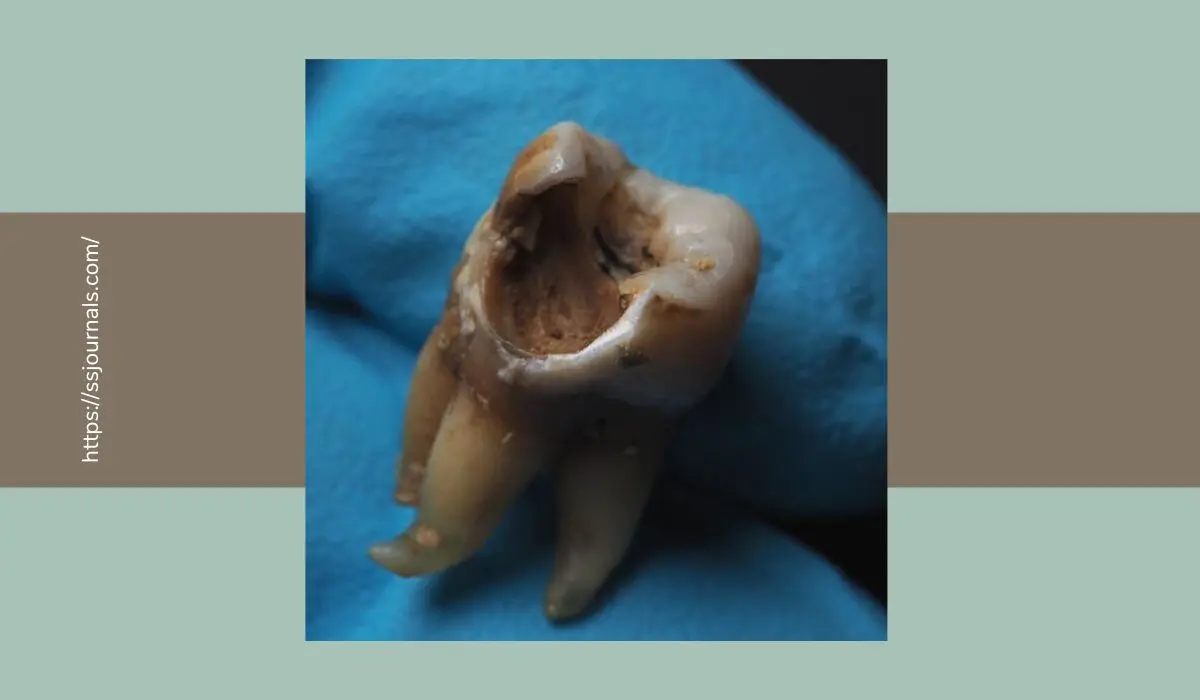Understanding decayed wisdom teeth is key to preventing further damage and discomfort.
Such teeth, which appear last, can cause major pain and disrupt daily activities such as eating and speaking.
To get a grip on this issue, it’s essential to understand the causes, symptoms, and preventative measures.
Poor oral hygiene and inadequate dental care can lead to plaque and bacteria buildup around the affected tooth, resulting in cavities, infections, and inflammation.
And, partially-erupted wisdom teeth may also add to decay, due to their hard-to-clean location.
Recognizing the signs of a decayed wisdom tooth is critical for early intervention.
Symptoms can include pain or tenderness around the area, swollen gums, bad taste or smell in the mouth, difficulty opening the mouth, and even earaches or headaches.
Ignoring these symptoms can worsen the issue and lead to more serious problems.
Preventing decayed wisdom teeth is key to keeping your oral health in check.
Visiting the dentist regularly, brushing twice a day with fluoride toothpaste, flossing daily, using an antibacterial mouthwash, and eating a balanced diet can help reduce the risk.
Consulting a professional about wisdom tooth extraction can also protect against future issues.
To avoid decayed wisdom teeth, practice good oral hygiene, seek regular dental check-ups, and address any concerns quickly.
A healthy smile goes a long way in boosting confidence and overall quality of life.
Decayed Wisdom Tooth
Decayed wisdom teeth can cause unpleasantness and even major dental problems. Knowing the reasons, preventive measures, and treatment options is essential for good oral health.
Third molars, or wisdom teeth, usually come in during the teenage or early twenties.
But, when there isn’t enough space or they don’t align correctly, they can get stuck, or partially come in. This makes them more likely to decay or get infected.
One reason for decaying wisdom teeth is poor oral hygiene. It’s important to brush and floss daily to remove food and plaque that can accumulate around the affected area.
Also, rinsing with an antiseptic mouthwash can help control bacteria build-up.
Another factor is what you eat. Sugary foods and drinks make tooth decay more likely.

Limiting them and eating a balanced diet with fruits, vegetables, and sources of calcium can keep your teeth healthy.
It’s important to visit the dentist regularly to detect early signs of decay in wisdom teeth.
Dentists may suggest X-rays to check position and spot any issues. If decay is found, treatment such as fillings or extractions may be needed.
Examining the history of decayed wisdom teeth shows how vital preventive measures are.
Ancient skulls have proof of impacted third molars from thousands of years ago. This shows this dental issue has been around for a long time.
Causes Of Wisdom Tooth Decay
Poor oral hygiene, inadequate nutrition, and overcrowding can all lead to wisdom tooth decay.
Not brushing and flossing regularly allows plaque to build up, while a diet low in essential vitamins can weaken the enamel.
Overcrowding can make it hard to clean the wisdom tooth properly. Plus, skipping regular dental checkups can also contribute to decay.
A study from the American Dental Association revealed that consuming excess sugar increases your risk of tooth decay – specifically wisdom teeth decay. Beware of these unwelcome houseguests lurking in your mouth!
Symptoms Of Decayed Wisdom Tooth
The signs of a decaying wisdom tooth can be a real cause for concern. It’s key to know these symptoms, to avoid any further problems.
These signs vary from person to person and can include:
🔶 Pain: A throbbing or constant pain in the back of the mouth is a common symptom.
🔶 Swelling: Swelling around the affected area can make it hard to open your mouth fully.
🔶 Bad Breath: Bacteria growth from a decayed wisdom tooth can lead to bad breath or an unpleasant taste.
🔶 Jaw Stiffness: Inflammation may make it difficult to move your jaw.
🔶 Sinus Problems: A decayed tooth near the sinuses can cause congestion or pressure.
🔶 Gum Infection: Red, swollen, tender gums may mean an infection.
Not everyone will experience all of these symptoms. It’s possible that only one or two will show up.
Ignoring them may lead to abscesses or damage to adjacent teeth. So, it’s important to get prompt dental care.
If you want to avoid a decaying wisdom tooth, remember: Boundaries and good oral hygiene are key.
Prevention Measures
Say ‘cheese’ with your wisdom tooth intact! To prevent decay, practice these home remedies:
🔶 Brush and floss twice a day with fluoride toothpaste.
🔶 Have regular dental check-ups to detect early signs of decay.
🔶 Eat a balanced diet, packed with fruits, veggies, grains, and lean proteins.
🔶 Use fluoride mouthwash and toothpaste for an extra layer of protection.
By following these steps consistently, you can reduce the risk of wisdom tooth decay. So start today for a healthier tomorrow!
Home Remedies For Preventing Wisdom Tooth Decay
To avoid wisdom tooth decay, there are several home remedies to try. These remedies provide relief from pain and help maintain dental health.
🔶 Brush your teeth twice a day with fluoride toothpaste. Pay extra attention to the wisdom tooth area.
🔶 Rinse your mouth with warm saltwater. Use half a teaspoon of salt in a glass of warm water, swish it around your mouth for 30 seconds, then spit it out.
🔶 Apply clove oil directly on the affected area. Dab a cotton ball in clove oil and place it on the decaying wisdom tooth for a few minutes.
Also, avoid hard foods and excessive force while eating. Limit sugary and acidic foods too.
Regular dental check-ups are essential. Dentists can identify early signs of decay and recommend treatments.
By following these home remedies and visiting the dentist regularly, you can keep your teeth healthy and prevent decay.
Untreated wisdom tooth decay can lead to serious infections and damage to nearby teeth.
So take preventive measures and seek dental care as soon as possible. Dentists are like superheroes, fighting cavities instead of crime!
When To Seek Professional Help
If your wisdom tooth is decaying, when should you consult a pro? It’s all about understanding the symptoms.
Persistent pain, swelling, or difficulty in opening your mouth? Time to seek expert dental care.
Decaying wisdom teeth can lead to infection. So, it’s crucial to sort out the issue quickly. A dentist will help diagnose the decay and suggest treatment.
Bad taste or smell from the affected area? Get professional help. It may mean an abscess or infection that needs immediate attention.
Your dentist has the know how to treat wisdom teeth. History has taught us the hard way not seeking professional help can lead to dire consequences.
Related:- Can Tooth Implants Cause Health Problems – Precautions To Take!
Conclusion
Finally, being mindful of your wisdom tooth decay is crucial for optimal oral health. A few steps can help reduce the risk of decay and its consequences.
🔶 Brushing twice daily and flossing often helps remove plaque that can lead to decay.
🔶 Additionally, use an antimicrobial mouthwash to lessen bacteria.
🔶 Limiting sugary and acidic foods and drinks stops erosion of enamel, making teeth more decay-resistant.
🔶 Eating healthy and drinking plenty of water too helps protect teeth.
🔶 Regular check-ups are key too. Early signs of decay can be identified and treated before it becomes worse.
🔶 Your dentist may suggest sealants or fluoride treatments to strengthen enamel.
🔶 Lastly, bad habits like smoking and excessive drinking heighten the risk of gum disease and tooth decay. So, practice good habits for better oral health!

